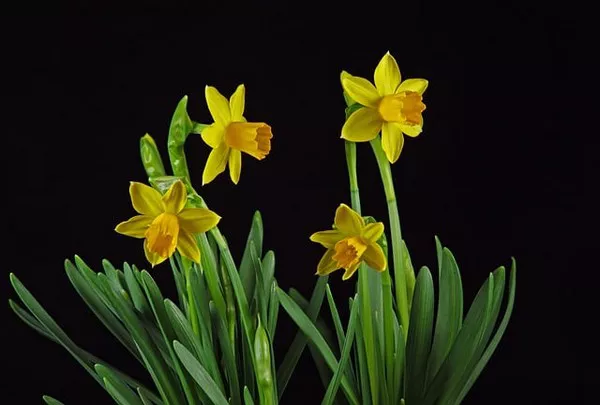Wild rabbits are notorious for their voracious appetites, often decimating gardens and landscapes in search of tasty greens. Gardeners and homeowners alike often find themselves battling these furry pests, trying to protect their beloved flowers from becoming rabbit snacks. While it might seem like wild rabbits eat just about anything green, there are actually several flowers that wild rabbits tend to avoid. Understanding which flowers rabbits are less likely to consume can help you plan a garden that is both beautiful and resistant to these furry invaders.
Knowing Rabbit Feeding Habits
Before delving into the specific flowers that wild rabbits tend to avoid, it’s essential to understand a bit about their feeding habits. Rabbits are herbivores, meaning they primarily eat plants. Their diet consists mainly of grasses, weeds, and other leafy greens. However, they are also opportunistic feeders and will munch on a variety of plants if given the chance.
Rabbits have preferences when it comes to the plants they consume. Some factors that influence their choices include taste, toxicity, and availability. While rabbits will eat a wide range of plants, there are certain types of flowers that they are less likely to nibble on. These flowers may have characteristics that make them less appealing or even unpalatable to rabbits.
Factors That Deter Rabbits from Eating Flowers
Several factors can deter wild rabbits from consuming certain flowers. Understanding these factors can help you choose flowers that are more likely to resist rabbit damage in your garden. Some of the primary factors that influence whether rabbits will eat a particular flower include:
Toxicity: Many flowers contain compounds that are toxic to rabbits. While some plants may be harmless to humans, they can be harmful or even deadly to rabbits if ingested. Rabbits have evolved to avoid plants that are toxic to them, so flowers with toxic properties are less likely to be eaten.
Texture: Rabbits prefer tender, succulent plants with soft leaves and stems. Flowers with tough or fibrous foliage may be less appealing to rabbits, as they require more effort to chew and digest.
Taste: Just like humans, rabbits have preferences when it comes to taste. Some flowers may have bitter or strong flavors that rabbits find unappetizing. Flowers with unpleasant tastes are less likely to be eaten by rabbits.
Scent: Rabbits have a keen sense of smell and may be deterred by strong or pungent odors. Flowers with strong-smelling blooms may be less attractive to rabbits, as the scent can be overwhelming or unpleasant to them.
Physical Characteristics: Certain physical characteristics of flowers, such as spines, thorns, or prickly foliage, can deter rabbits from eating them. These features make it difficult for rabbits to access the plant’s tender parts, discouraging them from feeding on the flowers.
By considering these factors, you can select flowers that are less appealing to rabbits and more likely to thrive in your garden.
Flowers That Rabbits Typically Avoid
While no plant is entirely rabbit-proof, there are several flowers that rabbits tend to avoid due to their taste, toxicity, or other deterrent factors. Incorporating these flowers into your garden can help minimize rabbit damage and create a beautiful and rabbit-resistant landscape. Some flowers that rabbits typically avoid include:
Daffodils (Narcissus spp.): Daffodils contain toxic alkaloids that can cause gastrointestinal upset if ingested. Rabbits generally steer clear of daffodils due to their toxicity, making them an excellent choice for rabbit-resistant gardens.
Lavender (Lavandula spp.): Lavender is prized for its fragrant blooms and aromatic foliage. The strong scent of lavender can deter rabbits, making it less likely that they will feed on these plants.
Bee Balm (Monarda spp.): Bee balm, also known as bergamot or Oswego tea, produces showy clusters of tubular flowers that attract pollinators. The pungent scent of bee balm foliage can deter rabbits from feeding on these plants.
Salvia (Salvia spp.): Salvia is a diverse genus of flowering plants that includes many species and cultivars. While some varieties may be more appealing to rabbits than others, many salvia species have strong-smelling foliage that rabbits find unpalatable.
Foxglove (Digitalis spp.): Foxglove is prized for its tall spires of tubular flowers, which come in shades of pink, purple, white, and yellow. However, all parts of the foxglove plant are highly toxic if ingested, making it unappealing to rabbits.
Lamb’s Ear (Stachys byzantina): Lamb’s ear is valued for its soft, fuzzy leaves, which resemble the ears of a lamb. While rabbits may be attracted to the texture of lamb’s ear foliage, the plant’s strong scent can deter them from feeding on it.
Yarrow (Achillea spp.): Yarrow is a hardy perennial with fern-like foliage and flat-topped clusters of flowers. The bitter taste of yarrow leaves and stems can deter rabbits from eating these plants.
Columbine (Aquilegia spp.): Columbine produces delicate, bell-shaped flowers in a range of colors, including pink, purple, blue, and white. While columbine may be susceptible to damage from other pests, rabbits typically avoid feeding on these plants due to their bitter taste.
Catmint (Nepeta spp.): Catmint is a member of the mint family and is prized for its aromatic foliage and attractive spikes of lavender-blue flowers. The strong scent of catmint can deter rabbits from feeding on these plants.
Russian Sage (Perovskia atriplicifolia): Russian sage is a drought-tolerant perennial with silvery-gray foliage and spikes of lavender-blue flowers. The pungent scent of Russian sage foliage can deter rabbits from eating these plants.
Conclusion
While wild rabbits can be a nuisance in the garden, there are steps you can take to minimize rabbit damage and protect your flowers. By choosing flowers that rabbits are less likely to eat, you can create a garden that is both beautiful and resistant to these furry pests. Incorporating plants with deterrent qualities such as toxicity, strong scent, or bitter taste can help keep rabbits at bay and preserve the beauty of your garden. With careful planning and selection, you can enjoy a vibrant and thriving garden that is less susceptible to rabbit damage.


